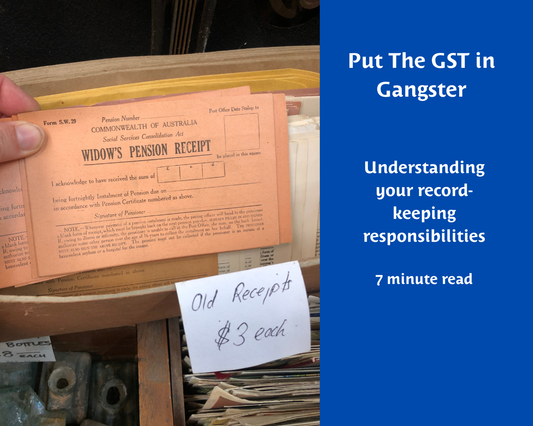When Must A Client Pay Superannuation?
Are you an independent contractor? Do you have a business that engages an independent contractor? What are your arrangements regarding super in your working relationship?
It’s a common misconception that independent contractors are never eligible for superannuation payments for the work they do - That you’re only eligible for super if you’re on a business’s payroll. It’s not as cut and dried as that. Some contractors ARE eligible for super, and their clients have an obligation to pay it, particularly when it comes to performance roles.
This article explains how to assess your superannuation obligations and entitlements when engaging, or working as, an independent contractor. We hope we can help businesses assess their obligations and empower contractors to be forthright about their entitlements.
Performance & Presentation Roles
According to the Superannuation Guarantee (Administration) Act 1992, the following workers are classed as employees when it comes to superannuation entitlements. This applies even when they’re independent contractors in the way that they invoice and are paid for their work.
- A person who is paid to perform or present, or to participate in the performance or presentation of, any music, play, dance, entertainment, sport, display or promotional activity or any similar activity involving the exercise of intellectual, artistic, musical, physical or other personal skills is an employee of the person liable to make the payment;
- A person who is paid to provide services in connection with an activity referred to above is an employee of the person liable to make the payment;
- A person who is paid to perform services in, or in connection with, the making of any film, tape or disc or of any television or radio broadcast is an employee of the person liable to make the payment.
Other Roles
For workers who don’t fit the above roles, you need to assess whether the worker should be classified as an employee or independent contractor for superannuation purposes. To reiterate, they can be an employee for superannuation purposes even if they’re not on the business’s payroll. When we make an assessment, we look to the ATO’s table of Employee or independent contractor traits and compare it to the terms of the worker’s contract. The table lays out the following traits in detail, but here’s a summary of our interpretation:
Control
Who has the legal right to control when, where and how the work is done? If the business commissioning the work has control, that is characteristic of an employee. If the worker can call their own shots, that is characteristic of an independent contractor.
Integration
If a worker serves in a business, or in a way that represents the business, that is characteristic of an employee. Serving in a business might involve wearing a uniform requested by the business, being trained by the business in how to do the work, and working specific hours or as part of the business’s team.
In the absence of these factors, and if a worker instead provides services to a business in order to further their own business, that is characteristic of an independent contractor.
Basis Of Payment
If the worker is paid a set amount per period (such as an award rate, salary or an hourly or weekly rate) for time worked, or by item or activity completed, or by commission, that is characteristic of an employee.
If they’re paid a quoted amount or fixed fee, to achieve an agreed or pre-determined result, that is characteristic of an independent contractor.
Subcontracting & Delegation
If the worker must perform the work themselves, and cannot pay someone else to do the work for them, that is characteristic of an employee. Independent contractors may have a clause in their contract allowing them to delegate or subcontract the work.
Tools & Equipment
If the business provides all or most of the tools, equipment and assets needed to complete the work, or provides an allowance or reimbursement to the worker for these, that is characteristic of an employee. If the worker is responsible for these factors themself, that is characteristic of an independent contractor.
Risk
If the business bears the commercial risk for any costs arising out of injury or defect in the work, that is characteristic of an employee. If the worker is legally responsible for defects in their work, and has to cover the costs related to rectifying defects, that is characteristic of an independent contractor.
Goodwill
Who benefits most from any goodwill resulting from the work? If it’s the business, that’s characteristic of an employee. If it’s the worker’s own business, that’s characteristic of an independent contractor.
Weighing Up The Traits
The ATO doesn't prescribe how to make an assessment based on these traits, but we choose to make an assessment based on whether the majority of traits fall into the employee category or the contractor category. For example, if we assess that four of the traits out of the seven suggest the worker is a contractor, and the other three suggest they are an employee, then we assess the worker as a contractor overall.
Businesses Voluntarily Paying Superannuation
A worker can still be paid super by a business, even if the business assesses them as a non-eligible independent contractor. The best way to do this is at the outset of the engagement. When a contract is being negotiated, super can be factored into the fee. This safeguards against superannuation becoming a dispute matter later. The business will need to pay any super contributions directly to the contractor’s chosen superannuation fund.
Contractors Paying Themselves Superannuation
We would also like to highlight that independent contractors can pay themselves superannuation. It’s not mandatory and, as a result, a significant number of contractors opt out or overlook contributing to their own superannuation funds.
We strongly recommend to independent contractors that they take charge of their super situation. It can reap benefits in securing their financial future, generating better returns than they would get from a savings account, and maximising tax benefits. To aid in this, we’ve published a separate blog article Super When You’re Self Employed.
Please note, the advice provided above is general - We encourage you to consult with a human resources adviser on these matters. If you have any questions please don't hesitate to email us at help@countingclouds.com.au




